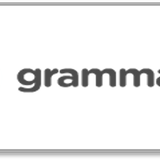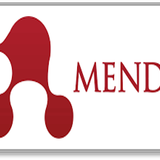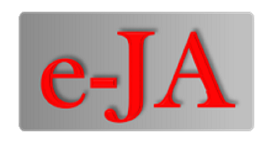Determinants Of Accounting Fraud Trends With Un Ethical Behavior As Mediation
DOI:
https://doi.org/10.24912/ja.v27i1.1234Abstract
This study aims to determine the effect of internal control, information asymmetry, and individual morality on the tendency of accounting fraud with unethical behavior as an intervening variable. The sample for this research is the head and executive staff of the financial sub-section of the SKPD in Central Java Province. The sampling method is purposive sampling method. The number of SKPD samples is 22 agencies. The data is primary data. The data analysis is SEM (SmartPLS Wrap 3.0). The results showed that internal control, information asymmetry, and individual morality had a significant effect on unethical behavior. Internal control, information asymmetry affects tendency of accounting fraud, individual morality has no effectagainst accounting fraud tendencies. Information asymmetry, morality individuals influence the tendency of accounting fraud through unethical behavior as mediation, while internal control is notsignificant effect.
References
Animah. (2018). The Effect of Accounting Information Systems and the Effectiveness of Internal Control on the Tendency of Accounting Fraud. Proceedings of the 4th National Seminar and Call for Papers of the Faculty of Economics, Muhammadiyah University of Jember. 168-183.
Aprilia, N., Parhusip. L; Asmawanti S. D. (2018). The Influence of Internal Control Effectiveness, Appropriateness of Compensation, Information Asymmetry, and Management Morality on Unethical Behavior and Tendencies of Accounting Fraud. XX National Symposium on Accounting, Jember, 2017.
Arista, Lilik Lia; Titisari, Kartika Hendra; Suhendro. (2016). The Influence of Internal Factors on the Tendency of Accounting Fraud at PT Pegadaian Area Surakarta. IENACO National Seminar 2016. ISSN: 2337-4349.
Aswad, Hijratul; Hassan, Amir; Indrawati, Novita. (2018). Factors Influencing the Tendency of Accounting Fraud with the Effectiveness of Internal Control as a Moderating Variable (Study on Private Oil Palm Plantation Companies in Riau Province). Accounting Journal. Vol. 6 No. 2. Apr. 2018. 221-234.
Azmi, Zul; Nisa, OsaHusni; Holy, Rama Gita. (2021). Factors Affecting The Tendency of Accounting Fraud in Hospitals in Pakanbaru City. Bilancia: Scientific Journal of Accounting. Vol. 5 No. 1. March 2021.
Bestari, D. S. (2016). The Effect of Internal Control Effectiveness, Information Asymmetry, and Individual Morality on the Tendency of Accounting Fraud with Unethical Behavior as Intervening Variables (Empirical Study on Regional Work Units of Riau Province). JOM Fekon. 3(1).
Calcia, Elijah. (2019). Analysis of Factors Influencing the Tendency of Fraud at the Pontianak City Health Office Based on the Fraud Triangle Theory. JRAMB Accounting Study Program, Faculty of Economics, UMB Yogyakarta. Vol. 5 No. 2. November 2019.
Damayanti, D. N. S. (2016). The Effect of Internal Control and Individual Morality on Accounting Fraud. Nominal Journal. V (2).
Fitri, Aishatul. (2020). Factors Influencing the Tendency of Accounting Fraud with Organizational Commitment as Intervening Variables. CURRENT The Latest Journal of Accounting and Business Studies.Vol. 1 No. 3. November 2020. Pp 475-493.
Fitri, Y. (2016). The Influence of Internal Control System Effectiveness, Accounting Compliance, Information Asymmetry and Individual Morality on the Tendency of Accounting Fraud with Unethical Behavior as Intervening Variables (Empirical Study on Regional Work Units of Riau Province). JOM Fekon. 3(1).
Ghozali, I. (2016). Partial Least Squares Technical Concepts and Applications Using the SmartPLS 3.0 Program. Semarang: Diponegoro University Publishing Agency.
Hasanuddin, A. I. (2016). Analysis of Factors Influencing the Trend of Accounting Fraud and Unethical Behavior (Case Study on SKPD in Keerom Regency). Regional Journal of Accounting & Finance. II(1), 01-12.
Helmayunita, N; Setiawan, M. A. (2017). The Effect of Internal Control, Financial Pressure, and Individual Morality on the Trend of Accounting Fraud: An Experimental Study in the Context of Local Government. Economic Journal. 1 (1).
Kurniati, I. (2018). The Effect of Compliance with Accounting Rules, Information Asymmetry, Distributive Justice and Effectiveness of Internal Controls on the Trend of Accounting Fraud with Unethical Behavior as an Intervening Variable. JOM FEB, I (I).
Kurrohman, Taufik; Widyaanti, Pramesti. (2018). Analysis of Factors Affecting the Trend of Fraud in State Islamic Religious Universities. Journal of Applied Managerial Accounting. Vol. 2 No. 2. September 2018. Pp. 245-254.
Nashruah, Nisa'Uzlifat; Wijayanti, Provita. (2019). Factors Affecting the Trend of Accounting Fraud in the Village Government. Indonesian Accounting Journal. Vol. 8 No. 2. July 2019. pp. 141-153.
Novikasari, Y. (2017). The Influence of Individual Morality, Government Internal Control System and Compliance with Accounting Rules on Accounting Fraud Trends (Empirical Study on SKPD Kuantan Singingi Regency). JOM Fekon, 4 (1).
Udayani, F., Agung, A.K. (2017). The Effect of Internal Control and Individual Morality on the Trend of Accounting Fraud. Udayana University Accounting E-Journal/ 13 (3).
Putri, Ni WayanAyu; Suartana, I Wayan. (2022). Factors Affecting the Trend of Accounting Fraud in LLD in Badung Regency: The Effectiveness of Internal Control. E-Journal of Accounting Vol. 32 No.1. January 2022. E-ISSN: 2303-8556.
Yulianti, F. D. (2016). The Influence of Individual Morality, Law Enforcement, Distributive Justice, Procedural Justice on the Trend of Accounting Fraud with Unethical Behavior as Intervening Variables (Study on Regional Work Units in Kampar Regency). JOM Fekon/ 3 (1).
Downloads
Published
How to Cite
Issue
Section
License
Copyright (c) 2022 Jurnal Akuntansi

This work is licensed under a Creative Commons Attribution-NonCommercial-ShareAlike 4.0 International License.
This journal provides immediate open access to its content on the principle that making research freely available to the public supports a greater global exchange of knowledge.

This work is licensed under a Creative Commons Attribution-NonCommercial-ShareAlike 4.0 International License



















